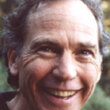The Omnivore's Dilemma: A Natural History of Four Meals
(Libby/OverDrive eBook, Kindle)
Available Platforms
Description
A few facts and figures from The Omnivore's Dilemma:
Of the 38 ingredients it takes to make a McNugget, there are at least 13 that are derived from corn. 45 different menu items at Mcdonald’s are made from corn.
One in every three American children eats fast food every day.
One in every five American meals today is eaten in the car.
The food industry burns nearly a fifth of all the petroleum consumed in the United States—more than we burn with our cars and more than any other industry consumes.
It takes ten calories of fossil fuel energy to deliver one calorie of food energy to an American plate.
A single strawberry contains about five calories. To get that strawberry from a field in California to a plate on the east coast requires 435 calories of energy.
Industrial fertilizer and industrial pesticides both owe their existence to the conversion of the World War II munitions industry to civilian uses—nerve gases became pesticides, and ammonium nitrate explosives became nitrogen fertilizers.
- ...
More Details
Excerpt
Similar Titles From NoveList
Similar Authors From NoveList
Reviews from GoodReads
Citations
Pollan, M. (2006). The Omnivore's Dilemma: A Natural History of Four Meals . Penguin Publishing Group.
Chicago / Turabian - Author Date Citation, 17th Edition (style guide)Pollan, Michael. 2006. The Omnivore's Dilemma: A Natural History of Four Meals. Penguin Publishing Group.
Chicago / Turabian - Humanities (Notes and Bibliography) Citation, 17th Edition (style guide)Pollan, Michael. The Omnivore's Dilemma: A Natural History of Four Meals Penguin Publishing Group, 2006.
Harvard Citation (style guide)Pollan, M. (2006). The omnivore's dilemma: a natural history of four meals. Penguin Publishing Group.
MLA Citation, 9th Edition (style guide)Pollan, Michael. The Omnivore's Dilemma: A Natural History of Four Meals Penguin Publishing Group, 2006.
Copy Details
| Collection | Owned | Available | Number of Holds |
|---|---|---|---|
| Libby | 3 | 1 | 1 |







































